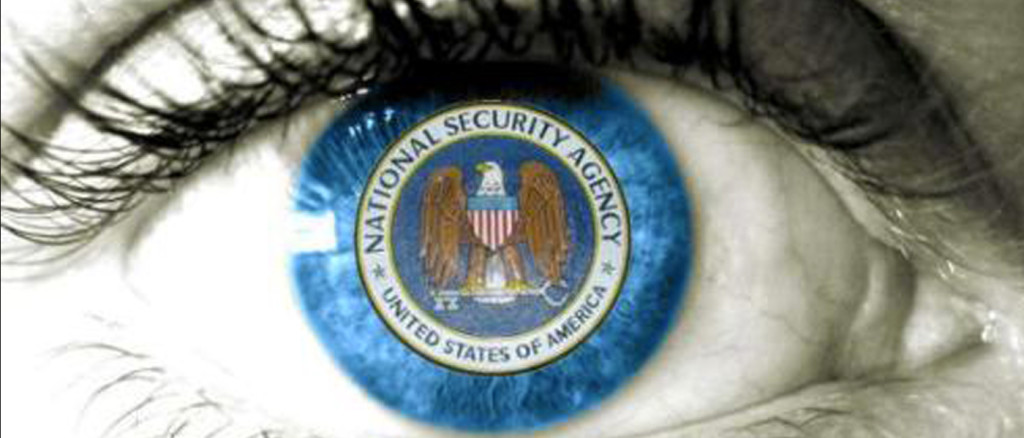Late last month, the House of Representatives took a short break from failing to repeal Obamacare and spent an afternoon failing to end the National Security Agency’s surveillance program that collects all of our phone records.
The Amash-Conyers amendment to a Department of Defense spending bill went down to defeat on July 24. But it put the national security state, a permanent fixture in American life that is currently headed by President Barack Obama, on notice that at least someone is watching them.
Or 205 someones, at least. It was a close vote (217-205), and if only six members had changed their minds and voted in favor of the amendment, the NSA would have been barred from scooping up what they call “metadata”: the information on who you call, when and for how long. For years, the spymasters have collected these phone records through a cozy arrangement with a secret federal court known as FISA (Foreign Intelligence Surveillance Act), using what they consider to be the powers vested in them by the USA PATRIOT Act.
Secret courts and blanket surveillance are not terms we are used to associating with the American way of life. They are not contemplated in the U.S. Constitution. They are not even contemplated by the PATRIOT Act, says one of the authors of that legislative response to al-Qaida, Rep. James Sensenbrenner (R-Wis.), who voted for Amash-Conyers and against the NSA programs.
The existence of this and other intrusive surveillance programs came to light when a man named Edward Snowden, who used to work for a company that worked for the NSA, dumped some of his files into the hands of Glenn Greenwald, who works for The Guardian newspaper in Great Britain, and the wheels started to come off the secret NSA bus. Snowden fled to Hong Kong and subsequently Moscow, where he endured weeks of vagrancy and a steady diet of airport food until Russian authorities decided to royally piss off the Obama administration and let him into their country, where he is free to reside until at least next summer.
Meanwhile, the guardians of our liberty, members of Congress who are sworn to defend the Constitution, told us pretty much to buzz off. Sen. Harry Reid (D-Nev.) said people should just calm down. Sen. Dianne Feinstein (D-Calif.) said that she knew about it all along and there was nothing to worry about. Sen Chuck Schumer (D-N.Y.), in between important matters like putting up doughnut shops in Syracuse (Mayor Bloomberg would be so disappointed), blamed the whole mess on Edward Snowden, and the media was eager to follow his lead, chewing on every facet of Snowden’s life instead of looking at the real issue: that pesky Fourth Amendment.
Obama, you may remember, said at the time of Snowden’s revelations that he welcomed a debate on the NSA’s methods. Just not this debate.
Our Syracuse area representative, Rep. Dan Maffei (D-Syracuse), put out bland talking points about balancing liberty and security while proclaiming that Congress had more important things to do, like save the middle class. Referring to the middle class on an hourly basis has become part of the job description of a member of Congress, along with eating the sausage sandwiches at the New York State Fair. But the Schumers and the Maffeis found that platitudes were not enough. There was genuine outrage out there.
And therein lays the good news. On this issue, the people had better sense than their representatives, and they made their views known. The rank-andfile members of the House, Republicans and Democrats, had better sense than their leadership, and they made their views known.
The brightest spot in the debate in Congress over NSA spying was this: Common sense and plain English beat the tyranny of the talking points. Talking points are those soulless paragraphs arranged after focus groups and poll testing, promulgated by committees that pay for re-election campaigns and designed to keep politicians “on message.” Politicians of both parties, like professional athletes, tend to repeat gobbledygook written by handlers and hope no one asks them a serious question.
In this case, enough people in Congress had the guts, thanks to you, to toss the talking points and do the right thing. Crisp clear prose dominated the debate.
While for weeks members of Congress had used platitudes about balancing security with liberty, Amash framed the debate in a very simple manner, which resonated because it happened to be true: “Do we oppose the suspicion-less collection of every American’s phone records?”
“Suspicion-less.” That’s the word that the talking-point promulgators seemed to forget. The national interest is served by tailing those who arouse enough suspicion to generate a warrant, not by treating all of us as potential criminals, just in case.
And it sounded refreshing. It was a break from the talking points of the two parties, the bland prose about saving the middle class that usually dominates discussion. When freedom is on the line, that kind of gobbledygook is not only soporific, but dangerous.
But this time they failed to lull the American people to sleep, because the stakes were too high. We proved by countless letters and emails to Congress that we do care about something other than creating jobs for the middle class (not that there’s anything wrong with that).
So step one has been taken, although nothing of substance has changed. As we speak, the National Security Agency still possesses the authority to keep track of all your phone calls. There is still no congressional action that has limited the NSA’s ability to collect information about who you call, when and for how long.
We are supposed to be reassured that they will use this power responsibly. History shows otherwise. Americans don’t barter away our freedom in exchange for promises of security.
At least not so far. Stay tuned. Keep listening. You know they will be.
Read Ed Griffin-Nolan’s award-winning commentary every week in the Syracuse New Times. You can reach him at [email protected].
Correction
“Should Have Known Better,” the July 17 Sanity Fair column, confused the sequence of the late Trayvon Martin’s school suspensions. His first suspension was for truancy. His subsequent suspensions were for graffiti and possession of a plastic bag with a pipe and traces of marijuana.



